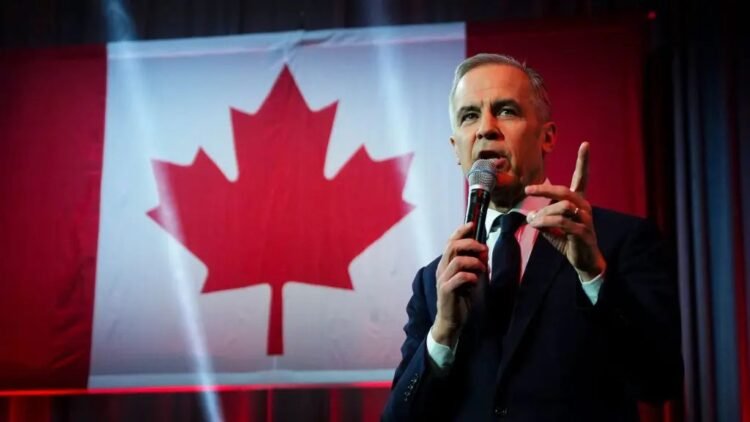Mark Carney has been elected as the new leader of Canada’s Liberal Party in a decisive first-ballot victory, securing 85.9% of the vote. His win follows Prime Minister Justin Trudeau’s resignation earlier this year, setting the stage for Carney to become Canada’s 24th prime minister in the coming days.
Carney Takes Aim at Trump and Poilievre
In his victory speech, Carney wasted no time outlining his vision for Canada, vowing to stand strong against both U.S. President Donald Trump and Conservative Leader Pierre Poilievre. He emphasized the need for new leadership to address emerging global and domestic challenges, asserting that Canadians want unity rather than division.
“Donald Trump thinks he can weaken us with his plan to divide and conquer. Pierre Poilievre’s plan will leave us divided and ready to be conquered,” Carney declared, pledging to maintain tariffs on American goods until Canada receives “proper respect” from its southern neighbor.
A Race Without Surprises
Carney’s dominance in the leadership race was expected, given his frontrunner status from the start. His main opponent, former deputy prime minister Chrystia Freeland, came a distant second with just 8% of the vote. Former cabinet minister Karina Gould and businessman Frank Baylis rounded out the field, each garnering around 3%.
With 151,899 party members casting votes, Carney’s overwhelming mandate signals a shift in leadership as Canada heads toward an anticipated federal election.
Trudeau Bids Farewell
Outgoing Prime Minister Justin Trudeau delivered an emotional farewell to the Liberal Party, reflecting on his nearly 12-year tenure. “I am damn proud of what we’ve done,” he said, highlighting his government’s achievements and resilience in times of crisis.
Former prime minister Jean Chrétien also addressed the crowd, praising Trudeau’s leadership and reaffirming Canada’s strength on the global stage.
Who is Mark Carney?
A former governor of both the Bank of Canada and the Bank of England, Carney has a storied career in global finance. Born in the Northwest Territories and raised in Edmonton, he holds degrees in economics from Harvard and Oxford. He has also worked at Goldman Sachs and served as an adviser to Trudeau during the COVID-19 recovery efforts.
Carney has never held elected office before and does not currently have a seat in Parliament. However, he has confirmed plans to run in the next federal election.
When Will Carney Take Office?
Although he is now the Liberal leader, Carney has not yet been sworn in as prime minister. Trudeau has indicated that the transition will happen “in the coming days,” but an exact date has not been set. Once Trudeau formally resigns, Governor General Mary Simon will invite Carney to form a government. Speculation suggests the swearing-in could happen as soon as Tuesday or Wednesday.
An Early Election on the Horizon?
With a federal election expected no later than October 2025, Carney now faces a crucial decision: govern for a period or call an early election to capitalize on his momentum. Some analysts predict he may trigger an election within a week of taking office, banking on a wave of renewed Liberal support.
If Carney opts to recall Parliament as scheduled on March 24, he may struggle without a seat in the House of Commons. Opposition parties could also push for a non-confidence vote, potentially forcing an election this spring.
Regardless of the timing, Carney’s victory marks the beginning of a new era for the Liberal Party, as he prepares to take on Poilievre and an increasingly complex political landscape.

 English
English



























































